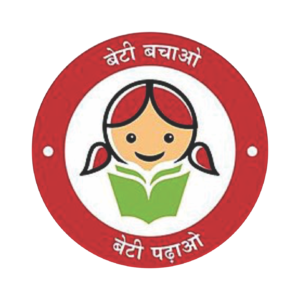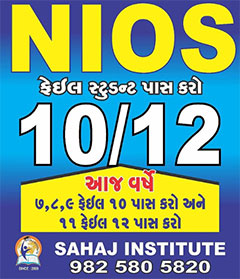SYLLABUS
COMMERCE
(Business Studies)
1. RATIONALE
The trend today in business is towards globalization. The entire world has become one big market. Development in transportation and communication has played a significant role in unifying varrious countries of the world. Business activities play a vital role in the development of a country. Its increasing contribution to production of goods and services measures the level of growth in an economy. Today goods are produced and sold in anticipation of demand. Business as an activity has become more complex and sensitive. It is also exposed to greater risks and uncertainties. Hence the activity requires a systematic learning and professional handling.
The current syllabus is designed to cater to the needs of National Open School students in various areas of business studies. It aims at creating an interest and understanding in the area of trade, and its auxiliaries, management, finance, and marketing and would enable the students to acquire the necessary knowledge and skills. The scope of business as a career is also highlighted.
The entire course content is divided into core and optional modules. Learning experiences considered essential for business studies are described in core modules, whereas practice oriented areas have been covered in optional modules.
The optional modules of the syllabus are based on vocational areas e.g. office procedures and practices, banking, setting up factories, and agency services. The modules would help the learners to enter the
world of employment/self-employment by creating an interest in them for vocational activities.
DISTRIBUTION OF MARKS
S.NO. CORE MODULES MARKS HOURS
| 1. | Introduction to Business | 16 | 40 |
| 2. | Business as a Career | 8 | 10 |
| 3. | Trade and Service Activities | 16 | 40 |
| 4. | Management of Business | 16 | 40 |
| 5. | Financing of Business | 12 | 30 |
| 6. | Marketing | 12 | 30 |
OPTIONAL MODULES
CHOOSE ANY ONE OUT OF FOUR MODULES
7. Office procedures and Practices
| 8. Practical Banking | 20 | 50 |
9. Introduction to Factory Set-up
10. Agency Services
| Total | 100 | 240 |
AIMS AND OBJECTIVES OF THE COURSE
GENERAL OBJECTIVES
1. The main objectives is to prepare the learners for activities related to trade and commerce.
2. To enable the learners to acquire knowledge, understanding and skill in business and management.
3. To create an interest in trade and auxiliaries and various kinds of services.
4. To educate the learner about the role of business in the economy and its social obligation to the community.
SPECIFIC OBJECTIVES
1. To acquaint the learner with the nature and scope of business and form of business organisation and its suitability.
2. To make them aware about the concept of trade-internal and external and activities auxiliary to trade.
3. To develop in them awareness about managerial skills like planning organising, staffing, directing and controlling.
4. To make them understand the concept of business finance sources (long-term, short-term), financial institutions and their services.
5. To develop in them the understanding of marketing, channels of distribution, sales promotion, advertising and personal selling.
6. To make them aware about avenues of employment, career development and self-employment, office procedure and practices, functions of commercial funds, factory set-up and agency services.
CORE MODULES
MODULE-I: INTRODUCTION TO BUSINESS
TIME: 40 HOURS MARKS: 16
APPROACH:
This module is designed to acquaint the learners with the nature and scope of business, and the different forms of business organisations.
PRE-REQUISITE KNOWLEDGE:
Understanding of human activities and knowledge of various forms of business organisation.
CONTENT UNITS
Unit. 1 Nature and scope of Business.
Unit. 2 Forms of Business Organisation:
Sole Proprietorship, Joint Hindu Family, Partnership, Joint Stock Company, Co-operative Society-characteristics.
Suitability of different forms of
Business organisation.
MODUL- II: BUSINESS AS A CAREER
TIME : 10 HOURS MARKS : 8
APPROACH:
This module explains business as a career, need for employment, avenues of employment and concept of self-employment. It analyses and identifies various jop opportunities in offices and business in general. It also describes the procedure of establishing a small enterprise.
PRE-REQUISITE KNOWLEDGE :
Understanding of the nature and scope of business.
CONTENT UNITS :
Unit. 1 Concept of career, need for employment. Avenues of employment and career in business through wage-employment.
Unit. 2 Self – employment in business and qualities required for success in business.
Unit. 3 How to establish a business enterprise.
MODULE-III : TRADE AND SERVICE ACTIVITIES
TIME : 40 HOURS MARKS: 16
APPROACH:
This module is designed to familiarise the learner with the importance of the different types of trade and its auxiliaries
PRE-REQUISITE KNOWLEDGE:
General knowledge of various concepts of trade and its auxiliaries.
CONTENT UNITS:
| Unit. 1 | Trade and auxiliaries to trade. | ||
| Unit. 2 | Internal Trade: Meaning of Retail and | ||
| Wholesale | Trade, Services of | ||
| wholesaler and Retailer. | |||
| Specialised | Retailing | Agencies: | |
| Departmental Stores, Multiple Shops, | |||
| Mail Order Houses, Super Bazars – | |||
| their characteristics, | merits and | ||
| demerits. | |||
| Unit. 3 | External Trade: Procedure of Export | ||
| and Import Trade, Main documents | |||
| used in Foreign Trade. | |||
| Unit.4 | Service Activities: | Transport, | |
| Communication, Postal Services, | |||
| Banking and Insurance. | |||
MODULE-IV : MANAGEMENT OF BUSINESS
TIME: 40 HOURS MARKS: 16
APPROACH:
This module is designed to acquaint the learners
with the concepts, general principles and functions of business management.
PRE – REQUISITE KNOWLEDGE:
General idea about management and role of managers.
CONTENT UNITS
Unit. 1 Introduction to Management: Definition, nature and scope of management, concept of scientific management and principles of general management.
Unit. 2 Planning: Meaning and process.
Unit. 3 Organising: Process of organising.
Unit. 4 Staffing: Recruitment and Selection of employees, their training and development, appraisal and promotion.
Unit. 5 Directing: Meaning and importance of communication, motivation, leadership and supervision.
Unit. 6 Co-ordination and Controlling: Meaning and process.
MODULE-V: FINANCING OF BUSINESS
TIME : 30 HOURS MARKS : 12
APPROACH:
This module is to introduce the learner with different sources of finance and financial institutions.
PRE-REQUISITE KNOWLEDGE:
General understanding of the basic concepts of financing of business.
CONTENT UNITS :
Unit. 1 Introduction to Business Financing.
Unit. 2 Sources of Short-Term Finance –
Nature and characteristics.
Unit. 3 Sources of Long-Term Finance-
Nature and characteristics.
Unit. 4 Role of Specialised Financial Institutions- Objectives and functions of IFCI, IDBI, ICICI, UTI and SFCs, related to financing of business.
MODULE-VI : MARKETING
TIME : 30 HOURS MARKS: 12
APPROACH:
This module is designed to acquaint the learners with various elements of marketing mix.
PRE- REQUISITE KNOWLEDGE :
General idea of market, marketing, advertisement and selling.
CONTENT UNITS:
Unit. 1 Meaning, objectives, nature and scope of marketing.
Unit. 2 Marketing mix.
Unit. 3 Channels of distribution.
Unit. 4 Sales promotion.
Unit. 5 Advertising.
Unit. 6 Personal selling.
OPTIONAL MODULES
CHOOSE ANY ONE OUT OF FOUR
MODULE-VII : OFFICE PROCEDURES AND PRACTICES
TIME : 50 HOURS MARKS: 20
APPROACH:
This module is designed to acquaint the learners with the concept of office and its set-up, various office activities and use of office equipments and machines.
PRE-REQUISITE KNOWLEDGE :
General understanding of office functions.
CONTENT UNITS:
Unit. 1 Nature and Functions of office.
Unit. 2 Office set-up: Type of Jobs in a modern office.
Unit. 3 Handling inward and outward mail. Unit. 4 Systems of filing and indexing. Unit. 5 Office equipments and machines.
MODULE-VIII : PRACTICAL BANKING
TIME : 50 HOURS MARKS : 20
APPROACH:
This module is designed to acquaint the learners with various transactions and services of commercial banks.
PRE-REQUISITE KNOWLEDGE :
General idea about banks and their functions.
CONTENT UNITS :
Unit. 1 Nature and Scope of Banking. Types of Banks.
Unit. 2 Functions of Commercial Banks.
Unit. 3 Opening and operating of Deposit Accounts.
Unit. 4 Loans and Advances.
Unit. 5 Other Banking Services.
MODULE-IX : INTRODUCTION TO FACTORY SET-UP
TIME : 50 HOURS MARKS : 20
APPROACH:
This module is designed to acquaint the learners with the service , working conditions and provisions of health, safety, and welfare measures in factories.
PRE-REQUISITE KNOWLEDGE
General understanding of the concept of a manufacturing unit.
CONTENT UNITS:
Unit. 1 Nature and characteristics of factories.
Unit. 2 Health and welfare measures in factories.
Unit. 3 Safety measures in factories.
Unit. 4 Working and service conditions in factories.
MODULE-X : AGENCY SERVICES
TIME : 50 HOURS MARKS : 20
APPROACH:
This module identifies the key activities involved in rendering various agency services. It also acquaints the learner with relevant documents and proforma.
PRE-REQUISITE KNOWLEDGE:
General idea about various agency services and their relationship with business.
CONTENT UNITS
Unit. 1 Meaning, characteristics and importance of Agency Services.
AGENCY AVENUES
Unit. 2 Types of Agency Services. Insurance
Agency, Saving Agency, Advertising
Agency, Tours and Travel Agency,
Property Agency, Couriers and
Packing Agency.
Unit. 3 How to secure agencies?
– Insurance Agency.
– Saving Agency.
– Tours and Travel Agency.
For any help related to admission in NIOS please contact Sahaj Institute on our Mobile No. 9825805820, 8200311128.



